NACDO is the community development section of the Anglican Diocese of Namibia that provides various services in the community to address social, health and developmental issues. With about 16 years of service to the communities in Namibia, NACDO has operated in other regions before but currently operates in four regions respectively in Oshana, Oshikoto, Omusati, Ohangwena covering 15 constituencies in total.
The year 2018 have been an important year for NACDO. It is vital to highlight that the period witnessed a lot of Organizational changes, Management structure, operation and implementation of various projects. After 15 years of service to NACDO, the then Director of Programmes Mrs. Jackie Park retired. To ensure stability and continuation, J.C. Flower Foundation who currently fund the Trans Kunene Malaria Initiative (TKMI) seconded their Technical Adviser to support NACDO through this transition period at the request of Right Rev. Bishop Luke Pato. Dr Gertrude Anyango Wafula took over this leadership responsibility from May 2017 to 1st October 2018 before handing over to Mr. Stefanus Nangombe the current NACDO Director.
The year 2019 was a milestone for NACDO. This period witnessed further organizational changes in terms of governance, management, operation and implementation of various projects. The year 2019 started off with a functional and active board of directors. The operational aspect covered a number of new measures such as reviewing existing policies and strictly enforcing the rules and regulations within such policies. Mr. Nangombe the current NACDO Director is the driver behind the NACDO vehicle, ensuring that everyone at NACDO is on board.
The year 2020 started off well with all project plans in place to implement all activities. Staff members were all enthusiastic to get back to work and looking forward to a productive and successful year. No one really paid much attention when talks of a virus in China surfaced around December 2019. No one had any idea that the said virus will spread throughout the world and devastate everyone.
Funded by the Bread for the World (BftW), the goal of this project is to increase farmers’ awareness and adoption of improved agricultural and farming techniques in Omusati and Ohangwena regions to participate in ending hunger and poverty in the targeted communities.
Communal famers in the northern Namibia, experienced a prolonged drought for many years. This occurrence created the severe drought characterized by water shortage. In response, the NACDO Food Security project adopted an agricultural technique which is easy to manage and requires minimal water for irrigation and requires minimal space with high productivity.
Through this technique, contact famers are trained on how to establish raised gardens using sacks supported by wooden poles. They also received training on soil preparation and management as well as sowing, planting, watering, weeding, maintenance, harvesting, and storage of the produce. Our CFs like this technique and find it easy to manage. Some of them testified that it improved their livelihood.
The NACDO Food Security project aims to strengthen community groups with knowledge and skills, making farmers experts in their own fields, sharpening farmers’ ability to make critical and informed decisions, sensitizing farmers to think differently and be able solve horticulture problems.
Ohendjeno village is one of the six villages where the Farmer Field School Approach Training is being demonstrated on an area of 30m x 25m. The purpose is to empower twenty (20) Contact Farmers and the end result is to see farmers empowered to organize themselves and share skills at a community level.
The community provided the site as can be seen in pictures for training and the NACDO food security team is technically leading the implementation process where Contact Farmers are trained through a continued hands-on exercise.
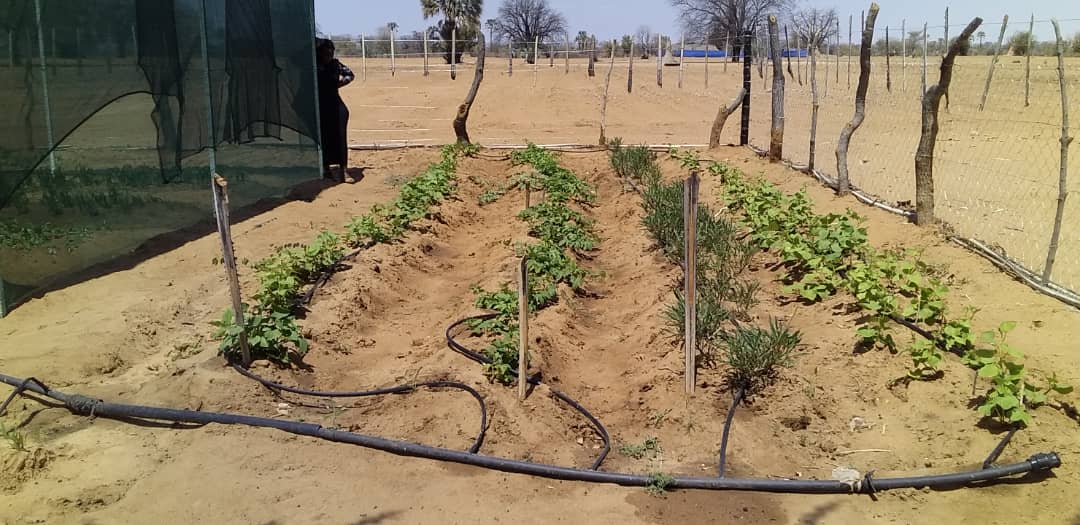
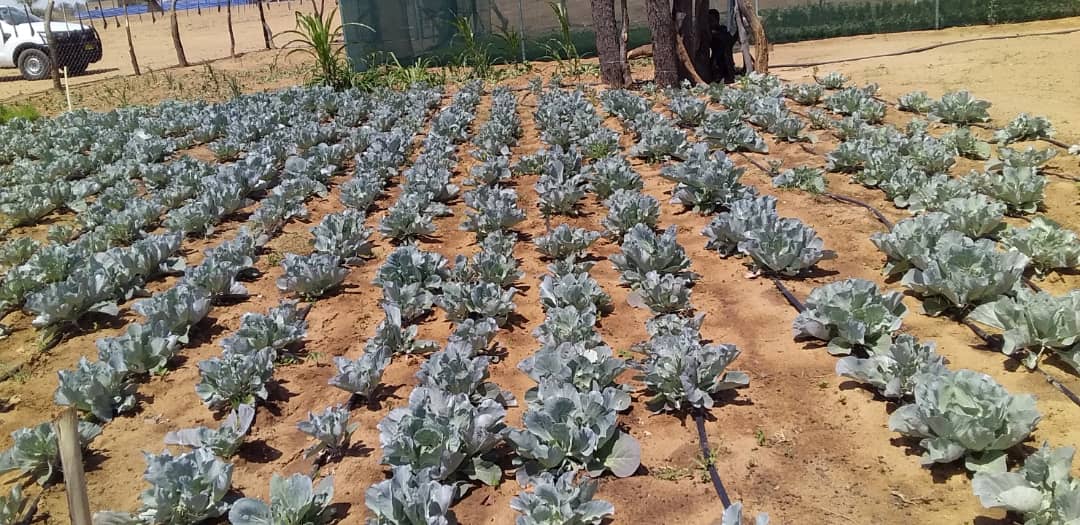
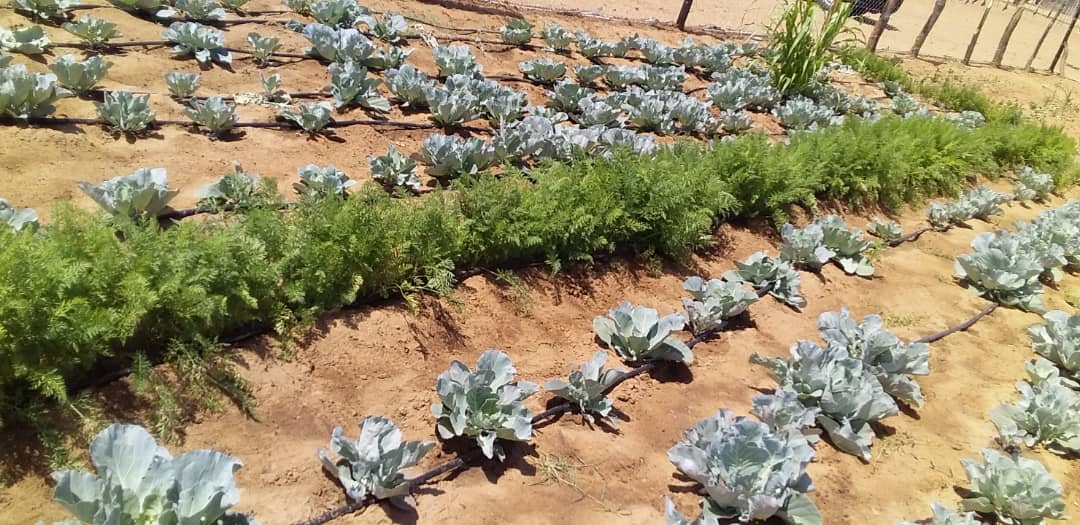
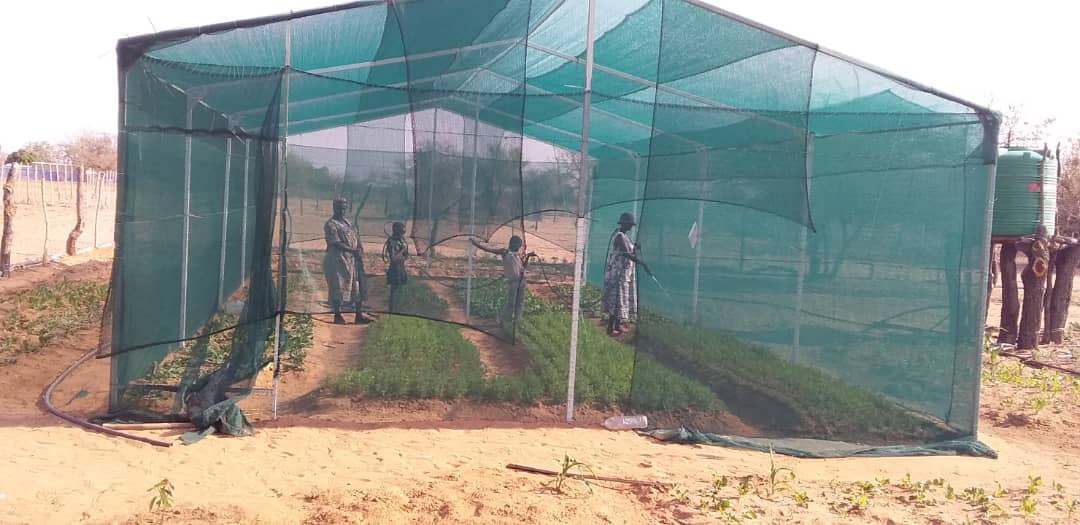
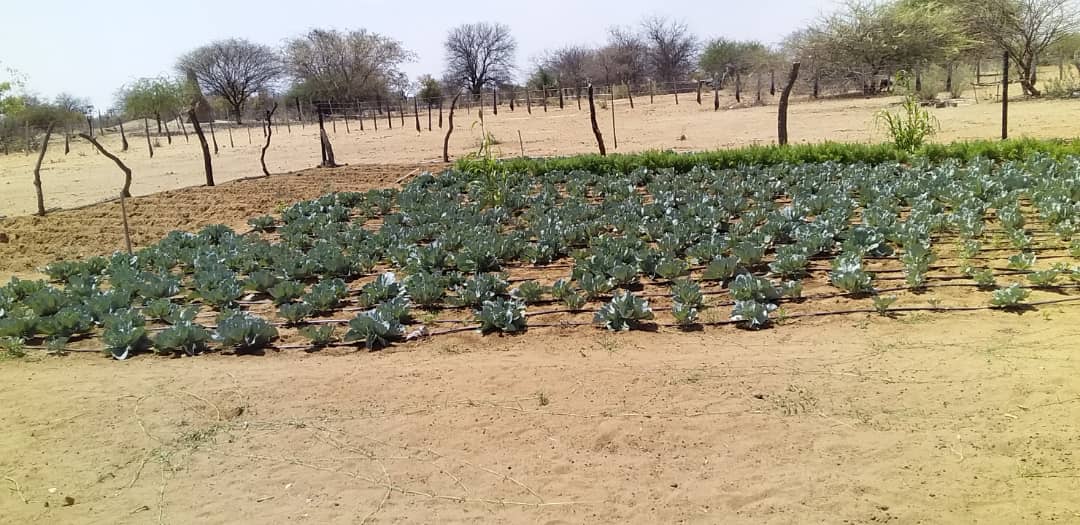
26/05/2020 Twenty contact farmers trained in Horticulture and Agroforestry. The garden is under the production of four varieties of sweet potatoes(Babota, Maphamanye, Japan 95, Monate), spinach, tomatoes and green pepper.
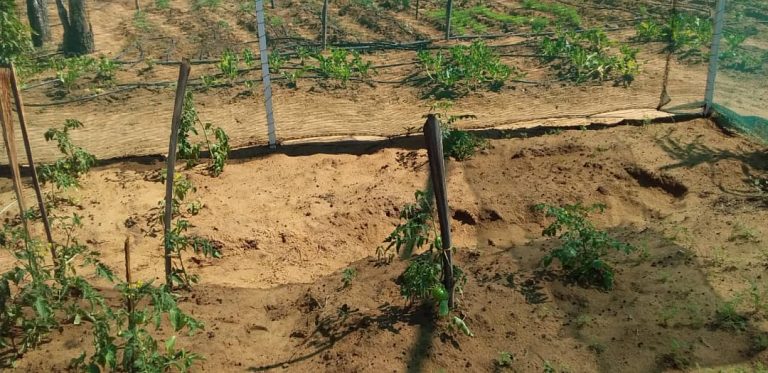
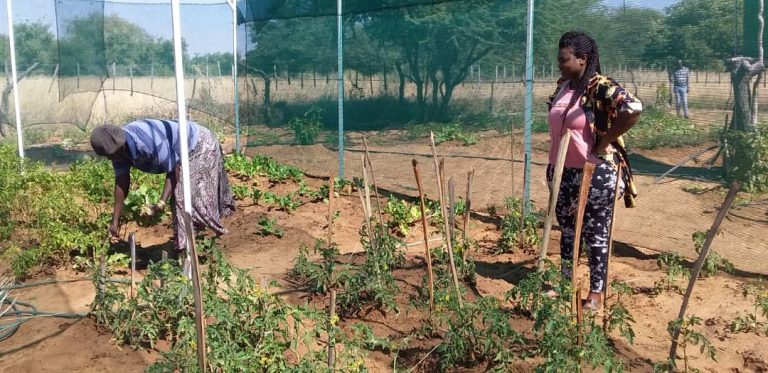
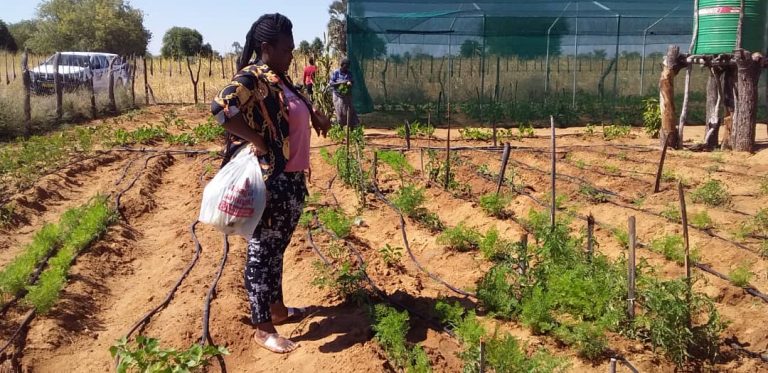
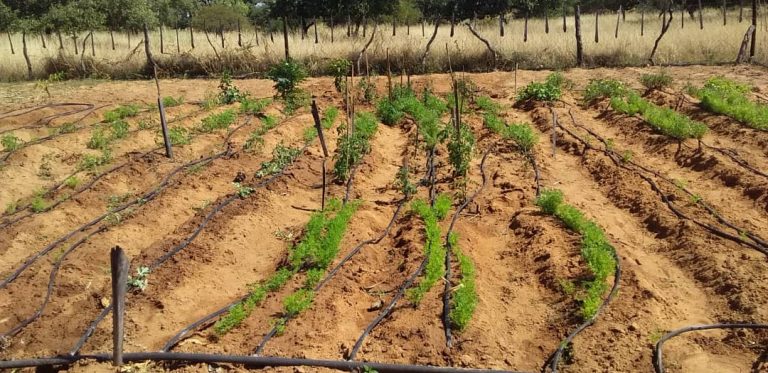
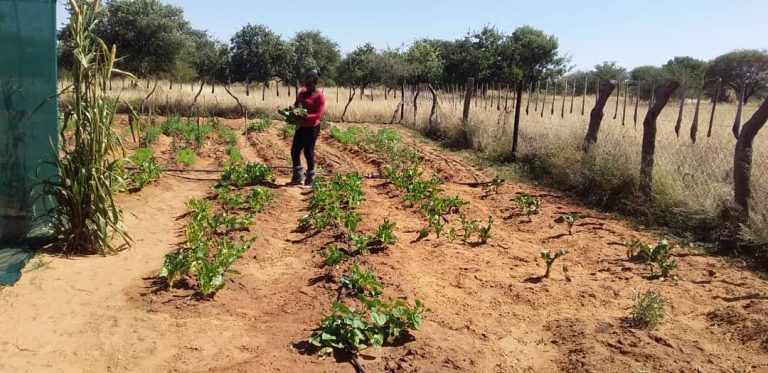
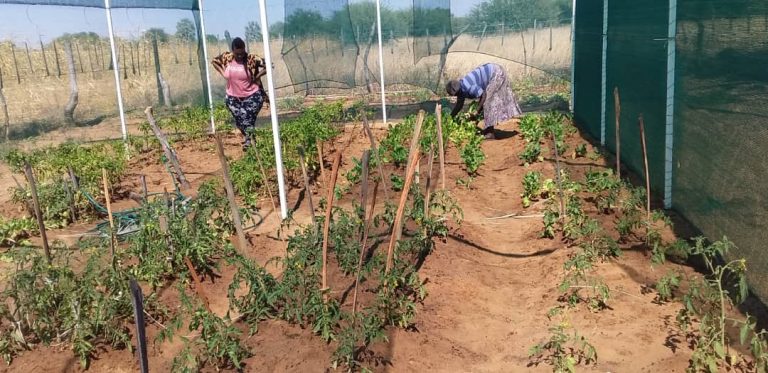
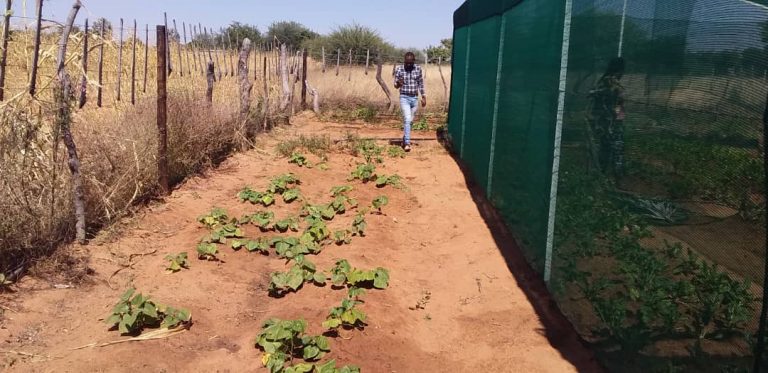
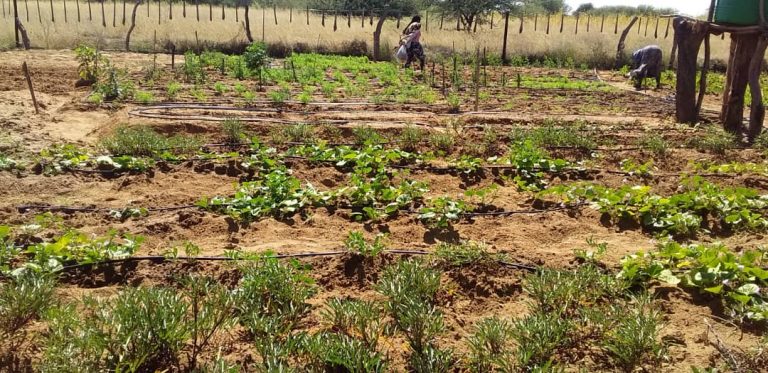
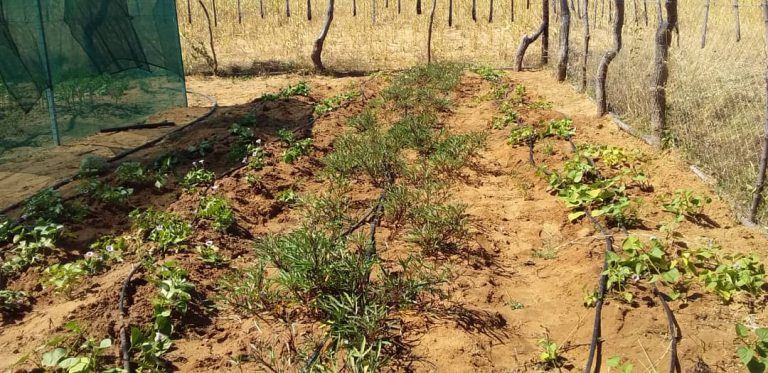
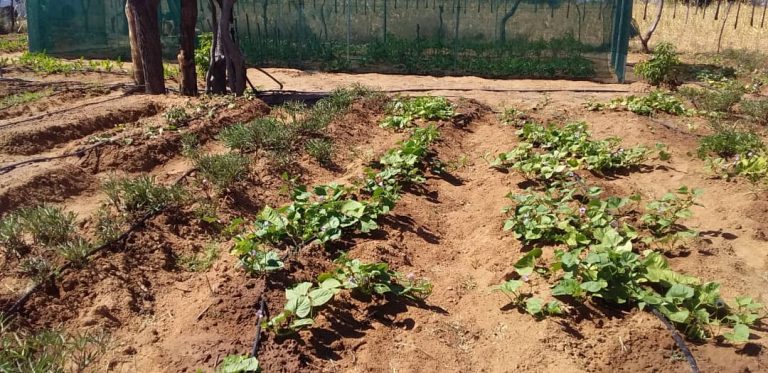
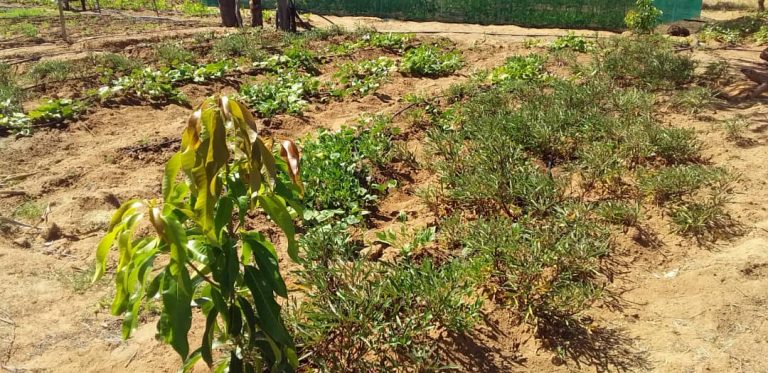
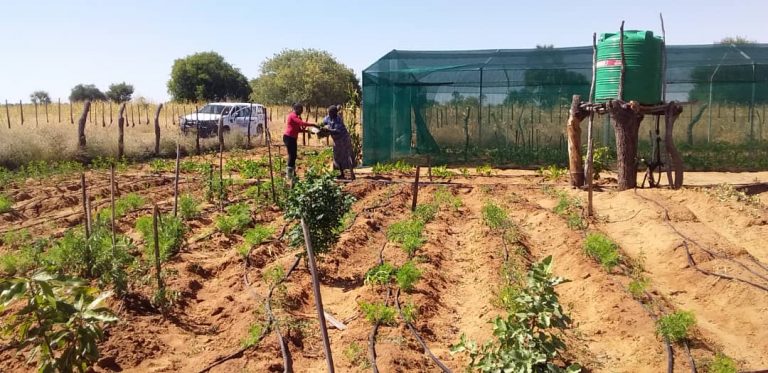
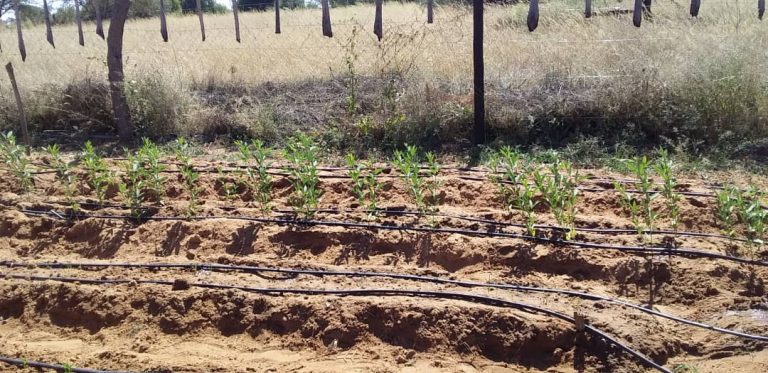
A keyhole garden is a raised or elevated garden with a keyhole-shaped hollow on one side. The hollow allows gardeners to reach all crops in the keyhole garden with in order to provide adequate care and support. Keyhole gardens are suitable for the elderly and people with back problems or chronic illness who find it difficult to participate in conventional gardening.
In line with the NACDO Food Security project goals and objectives, three beneficiaries were identified by their traditional leaders and vetted by their constituency Councilors to benefit from this Keyhole gardening initiative. The beneficiaries were selected from both Omusati and Ohangwena regions where NACDO implement the project.
During the establishment of these Keyhole Gardens, about 15 Contact Farmers from three villages were trained on how to establish, develop and maintaining keyhole gardens. Agronomic practices such as soil preparation, soil fertilization, plant spacing for different vegetables, sowing depth, transplanting, weeding, scouting, pest and disease prevention and compost making were all demonstrated. The CF were supplied with different seeds and encouraged to go and start their own home gardens. They also received training manuals translated in the local language as a reference material.

Below are some of the contact famer’s testimonies after receiving the training and support from the NACDO Food Security team:
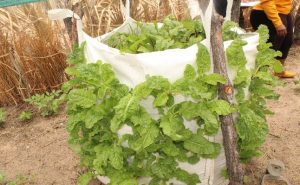
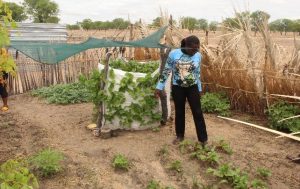
“I will start selling the surplus very soon”
Selma Andre is a young woman in Olupito village, Okalongo Constituency. She is unemployed and lives with her mother and siblings in their family home. The family depends on subsistence farming for survival. Just like other subsistence farmers in the area, they are also affected negatively by the effects of climate change. As a result, they produced less food, not sufficient to reach the next rain season. They also experienced severe water shortage for both domestic and gardening use. As lack of food and water increased during dry seasons, it became impossible for them to depend on vegetables as the main household food items. The Food Security introduced Selma and other community members to household gardening though which they received the training, seeds, sacks, a portion of shade net, growing media, and seedling tray. Selma assisted to establish her home garden in a sack. The technique of faming in a sack is suitable for them as it consumes less water compared to other conventional methods, it takes up small space, the soil used in sacks are well prepared and suitable for crop production, safe from many types of pests and yield is mostly high.A group of young people were trained on fish farming at Enghandja village in Ohangwena Constituency, Ohangwena region. After the training, they were supported by the Food Security Project with fingerlings and fish feeds.
One of our partners, Ministry of Fisheries and Marine Resources provided the youth with training and ongoing monitoring. As a result, they harvested tons of fish which were distrusted to all 220 households in the village.
As a results of good harvest, the Food Security project provided additional fingerlings, while the youth in the village took up the responsibility of sourcing for fish feed and safeguarding the dam which resulted in a bumper harvest as it can be seen in the above pictures.
Apart from tons of fish harvested as seen in the pictures, the dam still has enough fish for reproduction and harvesting. The community eat and generate income from the fish. Enghandja village is one of many villages which were trained in fish farming.
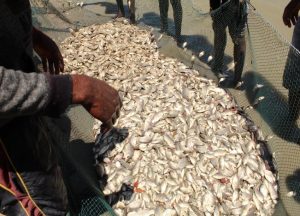
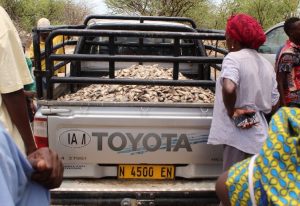
The video clips were taken during the malaria school campaigns, at Oneheke combined school in Omusati region Year 2019. Learners were prepared by their Life Skills teachers following the training of Life Skill teachers by NACDO staff. Learners presented dramas, poem, flyers and songs. The first video is for grade 1 learners presenting a poem in written posts, displaying the common signs and symptoms of malaria.
The Second video, is for the same grade performing a drama on how mosquitoes enter rooms during night time.
There are 4 sleeping spaces in one room.
